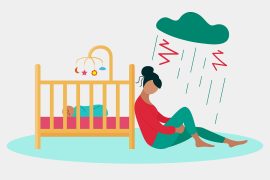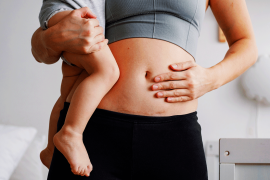Effects of pregnancy on blood pressure
Low blood pressure during pregnancy is a serious health condition that affects many women. Get the facts and tips on how to handle it.
Pregnancy can have a significant effect on blood pressure. During the first 24 weeks of pregnancy, blood pressure typically drops. This is considered normal and is due to the body’s natural response to the changes that occur during pregnancy.
The drop in blood pressure can be caused by dehydration, anemia, internal bleeding, prolonged bed rest, certain medications, heart conditions, endocrine disorders, kidney disorders, infections, nutritional deficiencies and allergic reactions.
It is important for pregnant women to monitor their blood pressure regularly and seek medical advice if they experience any sudden or drastic changes.
Low blood pressure can cause dizziness and fainting which can be dangerous for both mother and baby. Eating a balanced diet with plenty of fluids and avoiding caffeine can help keep your blood pressure at a healthy level throughout your pregnancy.
Regular exercise also helps maintain healthy levels of blood pressure as well as providing other benefits such as improved sleep quality and reduced stress levels.
What causes low blood pressure during pregnancy?
Low blood pressure during pregnancy is a common issue that can be caused by a variety of factors. The circulatory system expands to let more blood flow to the uterus, and this can cause a drop in blood pressure. Additionally, standing up too quickly or lying in a hot bath for too long can also lead to low blood pressure.
Allergic reactions, infections, prolonged bed rest, dehydration, malnutrition, internal bleeding, anemia, heart conditions and endocrine disorders are all possible causes of low blood pressure during pregnancy. Certain medications may also lower blood pressure. Extremely low blood pressure may be a sign of ectopic pregnancy.
During pregnancy, the circulatory system expands rapidly and hormonal changes can cause blood pressure to drop. Low blood pressure is common from 12 weeks into the third trimester but typically returns to pre-pregnancy levels after giving birth.
It is important for pregnant women to have regular check-ups with their doctor so any issues with their health can be monitored and addressed early .
Normal blood pressure levels at stages of pregnancy
Pregnancy is a time of great change for both mother and baby, and it is important to monitor the health of both throughout. One way to do this is by monitoring blood pressure levels.
Low blood pressure during pregnancy is usually diagnosed when the reading is around 90 mmHg over 60 mmHg. Blood pressure may drop during the first 12 weeks of pregnancy, but will rise again during the third trimester.
This drop in blood pressure can be caused by hormones that relax the walls of your blood vessels and increase the flow of blood.
Symptoms of low blood pressure include dizziness, nausea, weakness, fatigue, fainting, rapid heartbeat, confusion and blurry vision. If these symptoms are present or if your blood pressure drops too low (below 90/60), it could be indicative of an ectopic pregnancy or shock.
It is important to contact your doctor if you experience any of these symptoms or if you have concerns about your blood pressure levels at any stage of pregnancy.
Natural ways you can lower your blood pressure during pregnancy
High blood pressure is a common problem for pregnant women, and can lead to serious complications. Medications are not recommended during pregnancy, so lifestyle changes are key to controlling hypertension. Fortunately, there are several natural ways to lower your blood pressure during pregnancy.
First, it’s important to avoid processed and fast foods, which are high in sodium. When buying processed foods, look for low-sodium options or rinse canned food to reduce the sodium content. Eating a balanced diet with plenty of fresh fruits and vegetables is also important for maintaining healthy blood pressure levels.
Additionally, regular exercise can help keep your blood pressure in check. Exercise should be tailored to your individual needs and abilities; even light activities like walking or swimming can make a difference.
Finally, reducing stress levels and getting enough rest are essential for keeping your blood pressure under control during pregnancy. Taking time out of your day for relaxation techniques such as yoga or meditation can help you manage stress levels more effectively.
Dangers of Low Blood Pressure During Pregnancy
Low blood pressure during pregnancy is typically not a cause for concern, but it can be an indication of a more serious condition.
Severely low blood pressure during pregnancy may result in falls, organ failure, and shock. Low blood pressure may also be an indication of ectopic pregnancy, which is life-threatening and needs immediate medical attention.
Extreme drops in blood pressure can lead to shock, which is characterized by blue and cold or sweaty skin, weak and rapid pulse, or rapid breathing.
If you experience significant symptoms associated with low blood pressure during pregnancy such as dizziness, lightheadedness, blurred vision, fatigue, nausea or fainting spells, tell your doctor right away. Your doctor will likely check your vital signs and order additional tests to determine the cause of the low blood pressure.
Treatment options vary depending on the underlying cause of the low blood pressure but may include medications to raise your blood pressure or lifestyle changes such as increasing salt intake or drinking more fluids.
Diagnosis of Blood Pressure During Pregnancy
Blood pressure is an important indicator of health during pregnancy, and can be easily diagnosed with a simple test. The test involves wrapping an inflatable cuff around the arm and measuring the pressure as it inflates and deflates.
This can be done at the doctor’s office, pharmacies, or at home if recommended by a doctor.
Low blood pressure during pregnancy is caused by hormones that relax the walls of the blood vessels and increase the flow of blood. Symptoms of low blood pressure include dizziness, nausea, weakness, fatigue, fainting, rapid heartbeat, confusion and blurry vision.
It is important to monitor blood pressure during pregnancy as low levels can indicate an ectopic pregnancy or shock if it is very low.
It is important to take precautions when monitoring your blood pressure during pregnancy. If you experience any symptoms associated with low blood pressure such as dizziness or blurred vision then it is best to seek medical advice immediately.
Regular check-ups with your doctor will help ensure that your blood pressure is within a healthy range.
Treatment of Low Blood Pressure During Pregnancy
Low blood pressure during pregnancy is a common occurrence and usually does not require treatment. However, if the low blood pressure is caused by medication, your doctor may change the dosage or prescribe another medication.
Treatment of low blood pressure during pregnancy should be discussed with a doctor if it is associated with concerning symptoms.
There are several lifestyle changes that can help manage low blood pressure during pregnancy. Sitting or standing slowly can help prevent lightheadedness and fainting, while wearing loose clothing may help prevent dizziness.
Compression socks can also help increase circulation and blood pressure. Additionally, staying hydrated and drinking warm herbal teas to ease nausea can be beneficial. Eating smaller, more frequent meals instead of large ones can also help manage low blood pressure during pregnancy.
It’s important to check with your healthcare provider before increasing salt intake as it may be recommended to raise blood pressure in some cases.



